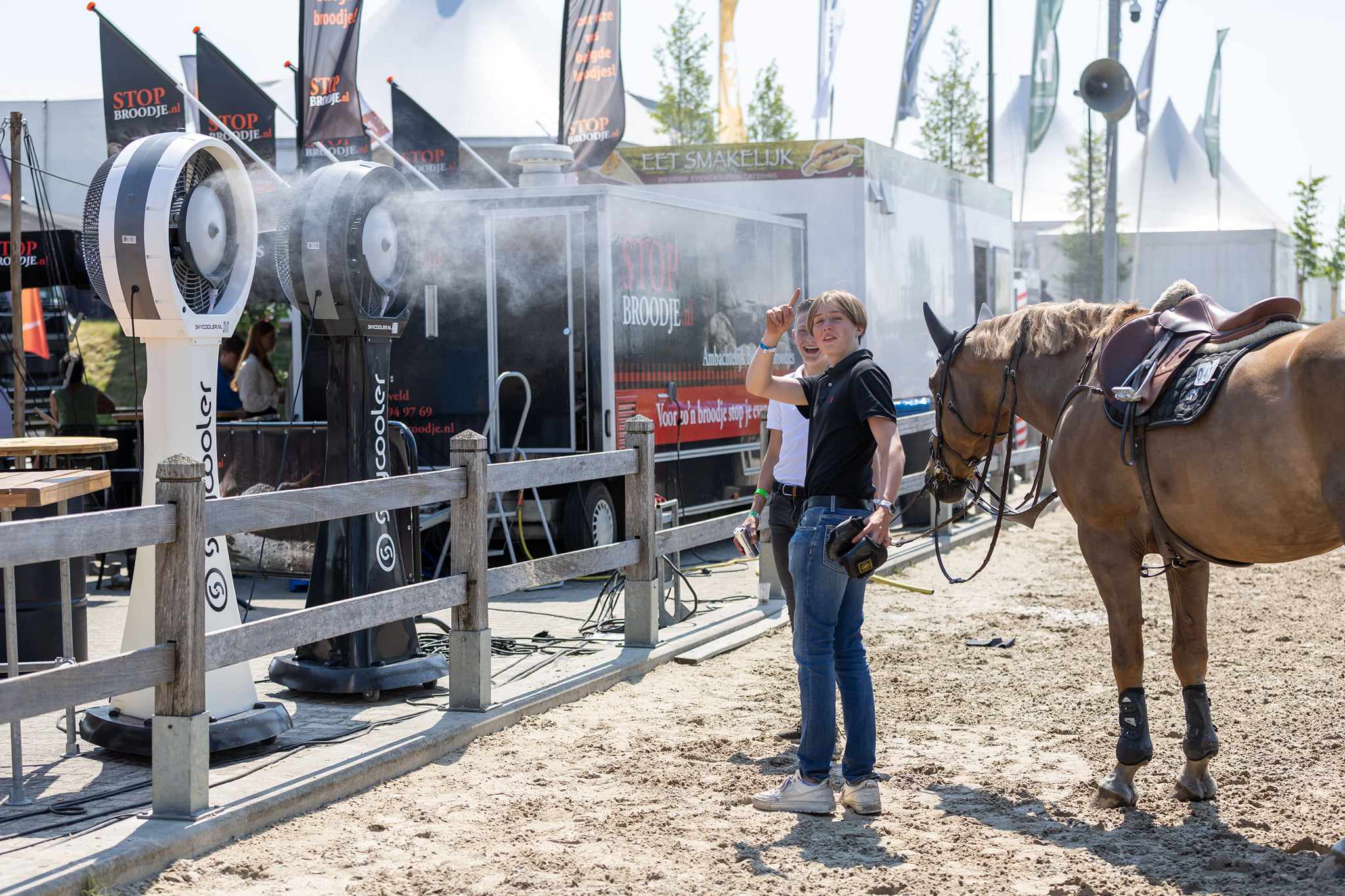Earlier today, we told you how best to cool your horse down during these temperatures. But can a heated horse drink cold water? Is it appropriate to scrape the water off your horse after cooling it down? We like to put some facts and fables in front of you!
Before we look at some facts and fables, it is important to know that horses cannot stand the heat as well as we can. A horse's normal body temperature is between 37 and 38°C. During hot days, this may be higher but once your horse's temperature rises above 40°C, your horse's organs and body cells can suffer permanent damage.
Statement: 'A heated horse should not be allowed to drink as much as he wants and never give him ice-cold water'
FACT: A horse should immediately be allowed to drink as much as he wants to replenish his fluid deficiency. A horse that is heated can drink from 9 to 20 litres of water at such a time. A 600kg horse at rest needs about 20 litres of water a day; a horse that has been heavily worked may drink even more. A horse that eats a lot of grass thus already gets a lot of fluids, so it will probably drink more. Most horses do not like to drink lukewarm or hot water, so always provide cool, fresh water. If your horse does not drink enough, you could put carrots or apples in the water. While 'biting' this way, your horse will also absorb more fluids right away.
Statement: 'You can't rinse a heated horse with cold water'.
FACT: The horse's heat is transferred to the water. The colder the water, the faster your horse will also cool down. Rinsing your horse's legs with cold water can prevent the legs from swelling due to excessive heat. However, cold water
Statement: 'Cooling down makes no sense if you scrape your horse with a sweat scraper afterwards'
FACT: 'You cool your horse by hosing him down. People sometimes say that it is important to scrape away the excess water with a sweat scraper. It's not true that the layer of water would prevent your horse's heat from escaping and therefore actually warm the horse up again. Water always has a cooling effect on a warm body. Water conducts heat better than air which ensures that the layer of water remaining on your horse further cools the body. By the way, this is also why horses (and we) sweat: the layer of water cools our bodies'.

